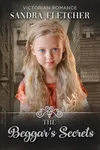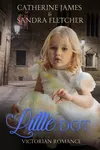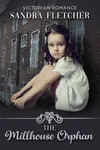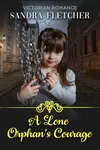Picture a storyteller who whisked readers to the gritty, gaslit streets of Victorian London—meet Sandra Fletcher! This English author spins historical fiction that pulses with the struggles and dreams of 19th-century children, women, and the impoverished. With a knack for vivid storytelling and a heart tuned to history, Fletcher’s novels don’t just entertain—they transport you to an era of hardship and hope.
Her tales, inspired by her father’s history lessons, shine a light on forgotten voices, blending meticulous research with emotional depth. Ready to stroll through London’s foggy alleys with Sandra Fletcher as your guide? Let’s dive into her world!
The Making of Sandra Fletcher
Born into a family where history was a living passion, Sandra Fletcher grew up absorbing her father’s tales of Victorian England. A history teacher, he instilled in her a love for the past, sparking her curiosity about the lives of ordinary people in 19th-century London. Now a widow living on the outskirts of London with her two dogs, Fletcher’s quiet life belies the vibrant worlds she creates. Her daily walks with her furry companions often double as brainstorming sessions, where the seeds of her stories take root.
Fletcher’s writing journey began later in life, after raising her children. Fueled by her father’s legacy and a desire to share the untold stories of Victorian underdogs, she turned to historical fiction. Her intimate connection to London’s history and her knack for empathetic storytelling quickly set her apart, earning her a loyal readership.
Sandra Fletcher’s Unforgettable Stories
Fletcher’s novels are a love letter to Victorian London, capturing its stark contrasts—opulent wealth alongside crushing poverty. Her works focus on the marginalized, particularly children and women, whose resilience shines through her pages. Take In A Lone Orphan’s Courage, a heart-wrenching tale of a London orphan battling disease and destitution. The story paints a vivid picture of a city where cholera and scarlet fever claimed countless lives, yet hope flickered in the darkest corners.
Another gem, Little Boy Lost, follows George, a boy cast out by his furious grandfather to fend for himself on London’s unforgiving streets. Fletcher’s prose weaves a tapestry of survival, with George navigating a world of chimney sweeps and crossing sweepers. Co-authored with Catherine James, Lottie’s Story traces a young girl’s journey through heartbreak and workhouse horrors, showcasing Fletcher’s ability to blend raw emotion with historical grit. Her stories don’t shy away from the era’s harsh realities—child labor, filthy streets, and disease—but they also celebrate the human spirit’s tenacity.
Fletcher’s style is immersive, blending meticulous research with a conversational warmth that makes history feel alive. Her characters, from orphaned messengers to struggling seamstresses, leap off the page, their voices echoing the resilience of Victorian England’s unsung heroes. Her work stands out for its focus on social issues, offering a lens into the lives of those often overlooked by history’s grand narratives.
Why Sandra Fletcher Matters
Sandra Fletcher’s novels do more than entertain—they educate and inspire. By centering the stories of children, women, and the impoverished, she challenges readers to see Victorian England through the eyes of its most vulnerable. Her work bridges past and present, reminding us of the progress made in education, healthcare, and social welfare while highlighting the resilience of those who endured. Fletcher’s empathetic storytelling has carved a niche in historical fiction, earning her a devoted following among readers who crave authentic, human-centered narratives.
Her influence extends beyond her books. Fletcher’s vivid depictions of Victorian struggles have sparked conversations about social reform and the enduring power of storytelling to preserve history. For fans of historical fiction, she’s a beacon of how the past can illuminate the present, making her a vital voice in the genre.
- Key Works: In A Lone Orphan’s Courage, Little Boy Lost, Lottie’s Story
- Setting: Victorian London, 19th century
- Themes: Poverty, resilience, social reform
Snag Little Boy Lost and dive into Sandra Fletcher’s gripping world of Victorian grit and heart—your next favorite read awaits!














